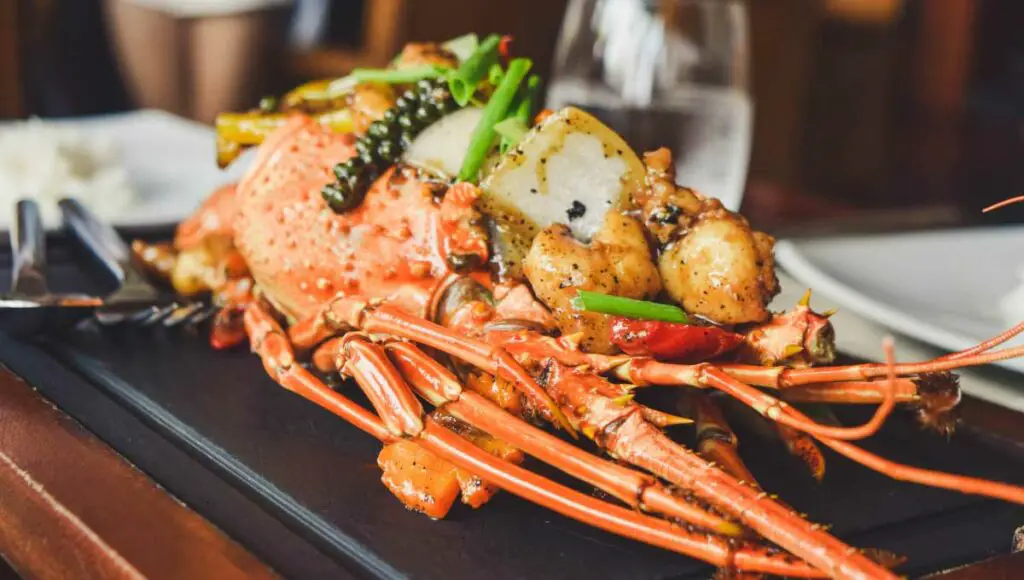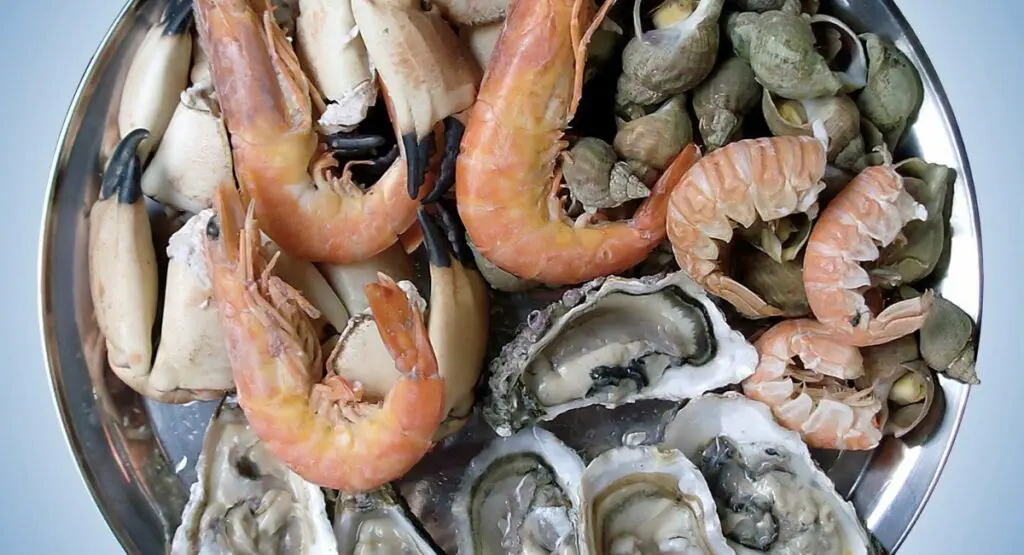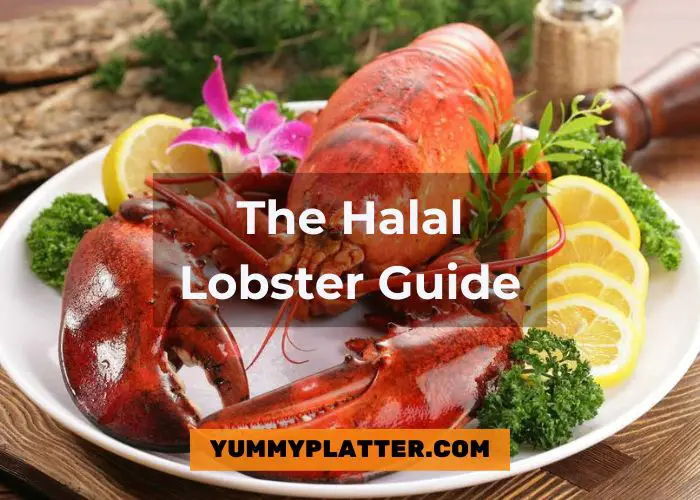Are you wondering, “Is lobster halal?” Well, you’re not alone. When it comes to what we eat, Islam has clear guidelines. These guidelines tell us what’s permissible, or halal, and what’s not, known as haram. Seafood, and specifically lobster, often pops up in these conversations.
Halal dietary laws are a crucial part of a Muslim’s life. They shape daily choices and practices. But, when it comes to seafood, things can get a bit murky. So, is lobster halal? It’s a simple question that opens up a world of discussion.
In this article, we’re diving deep into the ocean of Islamic dietary laws to fish out answers. Whether you’re Muslim looking to expand your dietary options, or just curious about Islamic practices, you’re in the right place. Let’s explore together whether lobster makes the halal cut or not.
Halal 101: The Basics You Need to Know
Alright, let’s get into the nitty-gritty of what “halal” really means. Think of halal as a thumbs-up for Muslims. It’s like a guide that says, “Yep, this is okay to eat, use, or do according to Islamic law.” Food, in particular, has its own set of rules to be considered halal. It’s not just about what you eat but also how it’s prepared.
Now, onto the big question: “What makes food halal?” For starters, the food must not contain anything Islam considers off-limits, like alcohol or pork. But there’s more when it comes to meat. The animal must be healthy before it’s slaughtered, and it should be done in a specific, respectful manner. Plus, mentioning Allah’s name during the process is a must. This ensures the food is not just physically clean but also spiritually respectful.
But hey, seafood is a whole other boat. Most Muslims agree that seafood is naturally halal. That’s right, no special slaughter needed here. Fish, shrimp, you name it – generally, they’re all good to go. But, “Is lobster halal?” That’s where the waters get a tad murky. Some say yes, others pause and ponder.
Seafood and Islam: What’s on the Menu?
Now that we’ve got the basics down, let’s talk about seafood’s place in Islam. It’s like opening a treasure chest under the sea; there’s so much variety and so many questions. And yes, we’re still circling around our big question: “Is lobster halal?”
First up, the Quran and Hadiths give us a green light on most seafood. It’s like the ocean’s bounty is all set up on a halal buffet. The general rule? If it lives in the sea, it’s pretty much good to go. This includes fish, shrimp, and even squids. The simplicity here is beautiful, isn’t it?
But here’s where it gets a bit more interesting. While the open-and-shut case of fish being halal is clear, lobsters are a bit of a wildcard. They’re not your typical fish, right? They’ve got that whole living-in-a-shell thing going on. So, the question “Is lobster halal?” isn’t just about curiosity. It’s about understanding the diversity within Islamic dietary laws.
Lobsters on the Halal Scale: A Closer Look

Alright, mates and folks, it’s time to zoom in on our crustacean friend, the lobster. We’ve been dancing around the question, “Is lobster halal?” Let’s dive right in and crack this shell, shall we?
So, lobsters, unlike fish, have a bit of a different lifestyle, living on the sea floor and all. Because they’re not your typical fish, some folks pause and wonder, “Can we include lobsters in our halal menu?” It’s a legit question, given that they’re more of a luxury seafood in both the UK and the USA.
Here’s the scoop: Islamic scholars have different takes on lobsters. Some say, “Yes, lobsters are halal,” citing the general rule that what comes from the sea is permissible. Others, however, scratch their chins and remind us that lobsters are a bit out of the ordinary with their shell-dwelling ways.
The debate isn’t just academic; it touches on daily life, especially for Muslims living in seafood-loving places like the UK and USA. Knowing if lobster is halal affects dining choices, family meals, and even social gatherings. It’s not just about legal rulings; it’s about cultural integration and maintaining religious principles.
Lobster Debates: Scholars Weigh In
Now, let’s get into the heart of the matter. When it comes to deciding if lobster is halal, it’s not just about what we think. Islamic scholars play a big role in this. They dive deep into texts and teachings to give us the lowdown. So, what do they say about our lobster query?
Here’s the thing: opinions vary. Some scholars give the green light, saying, “Yes, lobster is halal.” They point out that the sea’s bounty is largely permissible. It’s like they’re saying, “Go ahead, enjoy that lobster.”
But, hold on. Other scholars pump the brakes. They’re not as quick to add lobster to the halal list. Their caution comes from a place of wanting to stick closely to Islamic dietary guidelines. They ask, “Is eating lobster really in line with what’s been taught?”
This difference in opinion isn’t about confusion; it’s about interpretation. Islamic jurisprudence is rich and varied. It allows for discussions and differing views, especially on topics like whether lobster is halal. For Muslims in the UK, USA, and beyond, these scholarly debates are super relevant. They guide dining choices and help navigate the culinary world while staying true to Islamic teachings.

Navigating Halal Choices: Lobster Edition
So, we’ve dived deep into the ocean of opinions on whether lobster is halal. But how do you, as a consumer, navigate these waters? Let’s break it down, making it simple and straightforward.
First off, knowing if lobster is halal matters to many. Whether you’re dining out or cooking at home, you want to make choices that align with your faith. It’s not just about following rules; it’s about feeling good about what you eat.
Here’s a pro tip: check in with local Islamic authorities or trusted scholars. They’re like your culinary GPS, guiding you through the halal landscape. Their insights can help clear up any confusion, especially on debated topics like lobster.
Also, consider the source of your seafood. Not all lobsters are caught or prepared the same way. In some cases, how the lobster is handled from catch to kitchen can influence its halal status. It’s all about being informed and making choices that sit right with you.
For Muslims in different parts of the world, from the bustling cities of the USA to the historical towns of the UK, these decisions are part of daily life. It’s about balancing tradition with modern living, all while keeping faith front and center.
In wrapping up this section, remember: that navigating halal choices, especially when it comes to lobster, is about informed decision-making. Arm yourself with knowledge, seek guidance, and then, make the choice that’s best for you and your beliefs.
Beyond Lobster: The Bigger Picture of Halal Eating
Alright, we’ve chatted quite a bit about whether lobster is halal, but let’s zoom out for a moment. This isn’t just about lobster; it’s about the broader journey of halal eating. It’s a path filled with choices, questions, and learning.
Halal eating is more than just following a set of rules. It’s about connecting with your food on a deeper level. It’s asking, “Is this good for me? Is it good for the planet?” Yes, whether something is halal is important, but so is its impact on the world around us.
Think about it: choosing halal is also about choosing ethical and sustainable options. It’s considering how animals are treated, how crops are grown, and how our food choices affect the environment. It’s a holistic approach to eating that respects both religious teachings and the earth.
For Muslims around the globe, from the lively streets of the USA to the cosy corners of the UK, this approach to eating reflects a commitment to living a life in harmony with their beliefs and values. It’s about making choices that are not only halal but also Tayyib – pure, wholesome, and good.
FAQs
Is lobster considered halal to eat?
The halal status of lobster can vary among Islamic scholars. Generally, many scholars agree that seafood is permissible (halal) according to Islamic law. However, some scholars, particularly within the Hanafi school of thought, consider lobsters (and certain other sea creatures) to be makruh (disliked) rather than strictly halal. It’s best to consult with a knowledgeable religious authority or scholar in your community for guidance tailored to your specific beliefs and practices.
What makes a seafood item like lobster halal or not halal?
Seafood becomes halal or not based on Islamic dietary guidelines, which are derived from the Quran and Hadith. Most seafood is broadly considered halal because it comes from the sea and water itself is pure. However, the distinction for lobsters often revolves around interpretations of these sources and the classification of lobsters as either fish or something else. The method of slaughter does not apply to seafood as it does to land animals, but considerations about the creature’s habitat and lifestyle can influence its halal status.
Can Muslims eat lobster according to the Quran and Hadith?
The Quran and Hadith do not explicitly mention lobsters. They state that consumption of “what lives in the sea” is permissible. This has led many to conclude that all forms of seafood, including lobsters, are halal. However, interpretations can vary, and some scholars might classify lobsters differently, leading to different conclusions about their permissibility.
Wrapping It Up: The Halal Lobster Lowdown
And there we have it, folks – we’ve taken a deep dive into the sea of questions surrounding “Is lobster halal?” We’ve explored the nitty-gritty, heard from the scholars, and considered the bigger picture of halal eating. Now, it’s time to tie it all up with a neat bow.
First things first, whether lobster is halal isn’t a one-size-fits-all answer. It depends on who you ask and how you view Islamic dietary laws. Some say yes, lobster’s on the menu, while others suggest proceeding with caution. The key takeaway? It’s about making informed choices that align with your beliefs and values.
Remember, asking “Is lobster halal?” opened up a broader conversation about what it means to eat according to Islamic principles. It’s not just about ticking off halal boxes; it’s about considering the ethics and sustainability of our food choices. It’s a journey of mindfulness, respect, and responsibility.
So, whether you’re in the UK, the USA, or anywhere else in the world, embrace this exploration of halal eating. Seek knowledge, ask questions, and engage with your community. And most importantly, let your faith guide you in making choices that feel right for you.










Leave a reply